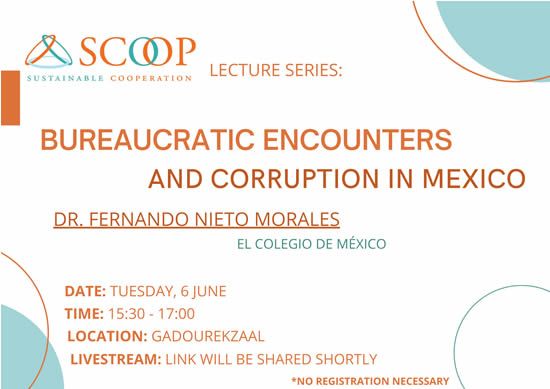Bureaucratic Encounters & Corruption in Mexico by Dr. Fernando Nieto Morales
Lecture abstract:
Petty corruption and bribery typically arise in bureaucratic encounters, particularly in “weak” institutional contexts. This type of corruption is especially troublesome because it creates direct costs for citizens, reduces public trust in government institutions, and increases social inequalities due to conditional access to public services and benefits. However, only a handful of studies directly deal with how attributes of different bureaucratic interactions create opportunities for this type of corruption. In this study, we contribute to filling this gap by studying how encounters (in the form of different government procedures) create administrative burdens and, thus, mitigate or exacerbate opportunities for corruption. Administrative Burden Theory posits that informational, psychological, and compliance costs arise in the interactions between citizens and the government. We propose understanding the relation between these burdens and corruption as a political economy. Structural conditions create situations where petty corruption is more likely to emerge because it is either a solution to a circumstantial problem or a means to benefit from power asymmetries in street-level interactions. Since structural problems leading to administrative burdens cannot be solved immediately, citizens and bureaucrats may resort to petty corruption as a coping mechanism (albeit for different motives) in concrete action situations. We build on these ideas to analyze the prevalence of bribes over more than 63,000 interactions across 20 different procedures ranging from paying taxes to accessing education or health services in Mexico (in 2021). Statistical analyses allow us to track differences in administrative burdens across procedures and individuals and correlate them to reported experiences of petty corruption.
Dr.Fernando Nieto Morales's Biography:
Fernando Nieto-Morales is professor of government and public administration at El Colegio de México (Mexico City). He studied his Ph.D. at the ICS-University of Groningen. His main research interests include policy implementation, corruption, professionalization, and bureaucratic pathologies in government organizations. More info: www.nietomorales.com





